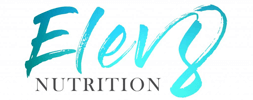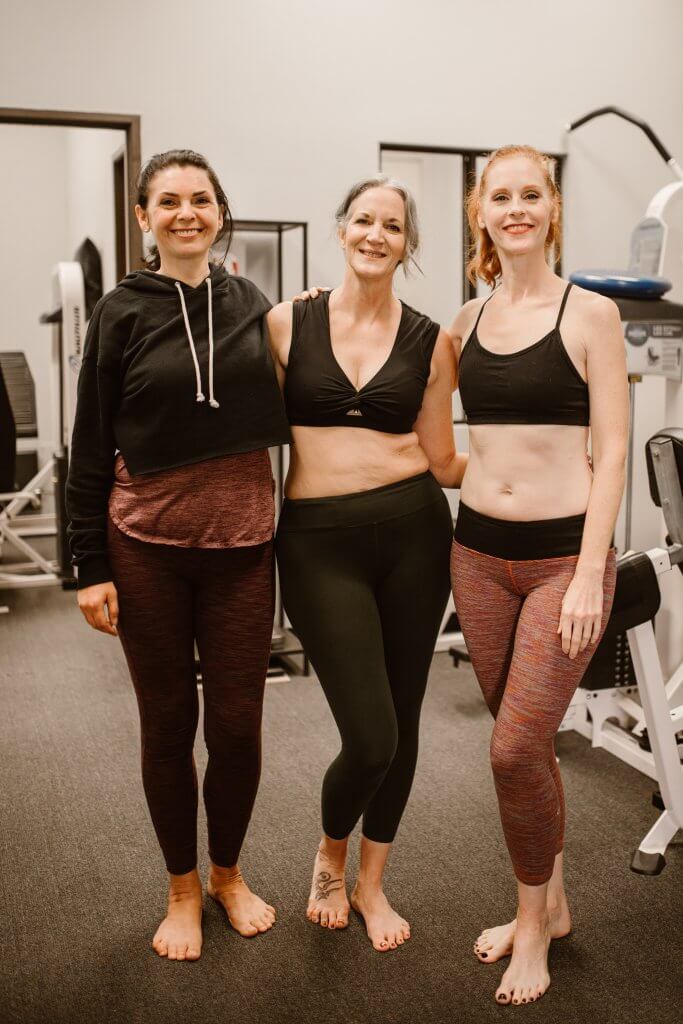Collagen…the buzzword that has been kicking around for a few years now.
One of the most common questions I get asked from women is surrounding the benefits of collagen. Many women understand and have heard that as we get older we experience a natural reduction in collagen production in our bodies and may be experiencing more joint aches and pains. This specifically leads to questions surrounding the idea of using collagen as a preventative measure. Many want to know, how can taking it help? Is it a guaranteed solution?
What is Collagen?
Collagen is a protein, and it’s the main component of the various connective tissues in the body—in other words, the substance that holds the body together. It’s present primarily in fibrous tissues such as tendons, ligaments, and skin, and it represents at least 30% of whole-body protein content. Thanks to collagen we are better able to move and stretch. The main proteins in collagen are glycine, proline, lysine, hydroxylysine, and hydroxyproline. 30 different types of collagens exist in the body but Collagen Type 1 is the most abundant making up 80-90% and found in the skin, bone, teeth, tendon, and ligaments. What separates collagen from other proteins such as whey and casein, is that collagen is not a complete protein it lacks tryptophan, one of the nine essential amino acids.; it is not beneficial as a post-exercise protein source as it won’t stimulate muscle protein repair adequately.
Since the body can’t digest collagen in its whole form, it is broken down into peptides. Collagen peptides have many different functions, first, they serve as the building blocks for the production of collagen and other proteins in our bodies, they also function as antioxidants, helping to protect existing collagen in the body from oxidative stresses that would degrade it.
The Hype Around this Supplement
You’ve likely seen or read something over the last few years as to why one would want to take collagen — I’m guessing that’s why you may have landed here! We know that after age 40 the human body can lose around 1% per year. We also know that estrogen has an impact on collagen synthesis and this may impact the stiffness and laxity of tendons and ligaments. Many factors can contribute to greater losses such as smoking, alcohol, UV light, nutrient deficiency, and inflammatory responses and disease. There have been many different claims made, such as collagen for skin elasticity, hair growth, gut health and joint function however, there is one problem with this. As much as we may want to determine what we are taking collagen for and how it is used once it is absorbed into our body, studies have shown that it is impossible to know exactly where the collagen is going once it has been absorbed. So while, you may hope that it is being used to help one of the aforementioned issues, when collagen enters the body our bodies are the ones who decide where we need the collagen the most. Meaning, if our bodies need it for healing purposes then that is where the collagen will go, as opposed to where you desire it to. Our bodies have their own way of prioritizing and deciding what happens to it. This is not a negative, as collagen serves a purpose to our bodies, however, it may not do exactly what you are hoping.
Availability in food
The amino acids or building blocks that make collagen can be found in foods that contain muscle or connective tissue such as lean meat, chicken, fish plus egg whites, and we also have foods that aid collagen production as they contain the vitamins and minerals that are needed to build collagen eg. Vitamin C foods like Kiwis. Red Pepper, Tomatoes, Citrus, Berries, Iron foods such as meat, fish, poultry, tofu, legumes, Zinc rich foods like oysters/seafood, dairy, nuts, Copper rich foods like beans, shellfish and cashews and green leafy veg for chlorophyll and eggs for sulfur. We can find all the building blocks for making collagen from food. Some research is taking place on non-animal fermented collagens but you won’t find vegan collagen. What’s more readily seen are collagen boosters for vegans e.g.containing vitamin C, E, Zinc and amino acids. You can get the plant-based amino acids from foods like asparagus, mushrooms, cabbage, alfla sprouts, beans, nuts seeds,soy-based foods like tofu and tempeh. In theory, the amino acids necessary for collagen production can come from any protein source—whether it be bone broth, cheese, beans, whey or quinoa. Focusing on adequate energy intake, nutrient-dense foods and quality protein with a variety of sources including plant, animal, nuts, seeds, tofu, and dairy as tolerated should always be taken into top consideration when thinking about collagen.
contain the vitamins and minerals that are needed to build collagen eg. Vitamin C foods like Kiwis. Red Pepper, Tomatoes, Citrus, Berries, Iron foods such as meat, fish, poultry, tofu, legumes, Zinc rich foods like oysters/seafood, dairy, nuts, Copper rich foods like beans, shellfish and cashews and green leafy veg for chlorophyll and eggs for sulfur. We can find all the building blocks for making collagen from food. Some research is taking place on non-animal fermented collagens but you won’t find vegan collagen. What’s more readily seen are collagen boosters for vegans e.g.containing vitamin C, E, Zinc and amino acids. You can get the plant-based amino acids from foods like asparagus, mushrooms, cabbage, alfla sprouts, beans, nuts seeds,soy-based foods like tofu and tempeh. In theory, the amino acids necessary for collagen production can come from any protein source—whether it be bone broth, cheese, beans, whey or quinoa. Focusing on adequate energy intake, nutrient-dense foods and quality protein with a variety of sources including plant, animal, nuts, seeds, tofu, and dairy as tolerated should always be taken into top consideration when thinking about collagen.
Collagen supplements for tendon and ligaments
Tendons and ligaments are like our bodies’ shock absorbers. They are notoriously difficult to study in nutrition and training responses as their turnover in the body is really slow. In general type 2 hydrolyzed collagen or collagen peptides can be used in the body to make full-length collagen to repair skin, bone, and joints. These claims and findings have been particularly interesting to athletes and those who live an active lifestyle. But, is collagen actually the miracle worker?
The short answer: the jury is still out on this one and maybe down to the type, timing, dose and if you are a responder
The theory behind how collagen can help resides in the fact that while we exercise the connective tissue pulls liquid in and the idea is that the liquid within the body at that time is high in the relevant amino acids due to the collagen so this could potentially help speed up collagen synthesis.
There have been a few studies that have been completed with small groups of athletes where they experienced increased collagen synthesis in the joints and ligaments. They took 15g of Vitamin C enriched gelatin, which is usually made from the skin, tendon, and ligaments of cows or pigs. This was taken 30 minutes before 6 mins of intermittent style exercise to stimulate collagen synthesis. They found higher markers of collagen synthesis which shows that in theory when you eat dietary collagen and exercise you increase collagen synthesis. It is early days yet if it impacts performance but some unpublished studies out of Keith Barrs laboratories have seen increased strength and power when supplemented before training and then a high-quality protein is taken afterward. Which leads to the idea that it may be beneficial for athletes with high training loads, during rehabilitation and return to training, off-season strength development, possibly master athletes and those on restrictive diets such as vegan, vegetarian, keto. It is hard to say whether this is true across the board. Further studies will have to be conducted regarding timing, the types, taken with caffeine or without, differences in pre and post-menopausal active women, and amount of collagen will all have to be taken into deeper consideration.
How to take Collagen
Taking a collagen supplement alone isn’t going to magically change you and won’t cause harm but it’s important to consider what type you are taking, why you are taking it, the cost, and be aware that a balance and variety in your diet will always be the foundation for collagen building.
The quick rule of thumb to remember is that protein after training is for repair and build muscles. Collagen is used generally before training sessions and seems to be more effective in the tendons and ligament collagen synthesis.
Type 2 collagen peptides are generally taken for cartilage, tendonitis, and osteoarthritis(can be 1-10g dosage may need to take for 6 months), Type 1 & 3 for bone, ligament and tendons, skin & hair(2.5-10g for 8-12 weeks). We may need to adjust dosages, start small amounts and then adjust.
Vitamin C is essential and intake needs to be considered as this helps with absorption and functions as an antioxidant to combat oxidative stresses that would degrade existing collagen. Fruits and vegetables are the best sources of vitamin C and most 50mg-200mg although still unknown the optimum.
Collagen is still undergoing a lot of research and while we know a lot more than we did, we still don’t know everything. It’s important to understand that while something may be portrayed as a miracle cure on media outlets, we must do our own due diligence before relying on it solely to fix our problems. Always assess the supplement source and it’s a good idea to buy from third-party assessed supplements such as Informed-Sport. We do know that if you wanted to prevent injury on connective tissues, short bouts of exercise with light weights (even 10 minutes) with >6 hours before or after training can stimulate collagen synthesis, high-quality protein foods that are leucine-rich around training will benefit tendons due to added muscle mass and strength. As blood flow is limited to resting tendons and glucose uptake is seen in exercising tendons, it’s suggested nutritional interventions designed to directly target a specific tendon/ligament needs to be in place prior to exercise. This is where timing is a very important point for supplementation.
With that being said, there is lots of excitement around the possibilities from collagen and in the coming years, we will receive more info!


